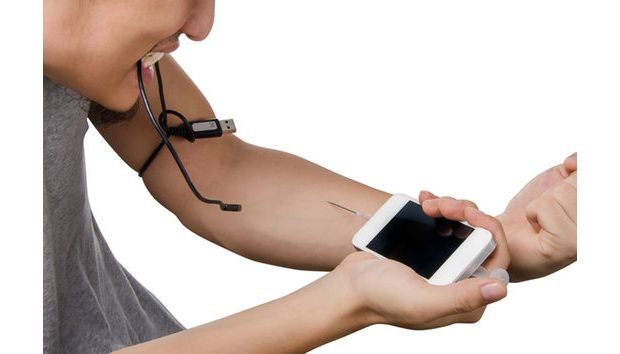Would our addiction to technology make us more stressed at work?

Robby Macdonell from Nashville Tennessee, founded tech start-up RescueTime because he was so frustrated not knowing where his days were going.
Similarly, Dajia Zhu from Hangzhou in eastern China, wrote the StayFocused app to help himself and others be honest about how much time they were devoting to work tasks, as opposed to web browsing or messing about on social media.
In a similar vein, Irish start-up Galvanic has come up with Pip, a small, white device that measures skin perspiration – an indicator of stress according to many researchers.
Biofeedback devices like these give people “a window into their physical response to stress, helping them learn to control it,” says Ian Robertson, professor of psychology at Trinity College Dublin and chair of Pip’s scientific advisory board.
Google, Target, and the Marine Corps have all recently introduced meditation sessions in the workplace.
And the technology causing us all this “always on” grief – the smartphone – can be used effectively to deliver such courses, says Michael Acton Smith, co-founder of Calm.com, a meditation course provider.
How to submit an Op-Ed: Libyan Express accepts opinion articles on a wide range of topics. Submissions may be sent to oped@libyanexpress.com. Please include ‘Op-Ed’ in the subject line.
- Libya’s HCS invites applicants for key state roles - December 31, 2023
- UK calls on Iran to prevent escalation in Israel-Hamas conflict - November 05, 2023
- Libyan Interior Minister: Immigrant shelter costs a fortune - November 05, 2023


